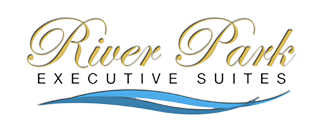Having a great office space contributes to your brand image in several ways:
Professionalism: A well-designed and modern office space reflects professionalism and attention to detail, signaling to clients, partners, and stakeholders that your company is serious about its business and committed to providing high-quality products or services.
Credibility: A professional-looking office space instills confidence in your brand and builds trust with customers and clients. It reassures them that your company is stable, reliable, and capable of delivering on its promises.
Innovation: Innovative and creative office environments can showcase your company's forward-thinking approach and commitment to innovation. They signal that your company is dynamic, adaptable, and always looking for new ways to improve and evolve.
Employee Recruitment and Retention: A great office space can be a powerful recruitment tool, attracting top talent who are drawn to companies that prioritize employee well-being and provide inspiring work environments. It also helps retain existing employees by fostering a positive work culture and sense of belonging.
Employee Satisfaction and Productivity: Quality amenities contribute to a positive work environment, enhancing employee satisfaction and morale. When employees feel valued and comfortable in their workspace, they are more likely to be productive and engaged in their work.
Talent Attraction and Retention: In today's competitive job market, companies need to offer more than just a salary to attract and retain top talent. High-quality amenities can be a key differentiator, helping companies stand out as employers of choice and attracting skilled professionals who prioritize work-life balance and well-being.
Enhanced Collaboration and Creativity: Amenities such as collaborative workspaces, lounges, and recreational areas encourage interaction and brainstorming among employees, fostering creativity and innovation. These spaces provide opportunities for informal meetings, networking, and idea exchange, which can lead to new insights and solutions.
Health and Wellness: Wellness amenities such as fitness centers, meditation rooms, and healthy snack options promote employee health and well-being. By investing in the physical and mental wellness of their workforce, companies can reduce absenteeism, improve employee retention, and increase overall productivity.
Having an office space can be instrumental in helping your company grow for several reasons:
Professional Image: A physical office space provides your company with a professional image and legitimacy, which can be essential for building trust with clients, partners, investors, and other stakeholders. It signals that your company is established, credible, and serious about its business.
Collaboration and Innovation: Office spaces facilitate collaboration and teamwork among employees, fostering creativity, innovation, and problem-solving. Face-to-face interactions, brainstorming sessions, and spontaneous conversations are easier to facilitate in a shared physical space, leading to new ideas and solutions that can drive growth.
Networking Opportunities: Office spaces offer opportunities for networking and building relationships with other professionals, businesses, and industry contacts. Being part of a shared workspace or business community can open doors to new partnerships, clients, and opportunities for growth.
Attracting and Retaining Talent: A well-equipped office space can help attract top talent who are drawn to companies that provide inspiring work environments. It also plays a role in retaining employees by creating a positive work culture, fostering a sense of belonging, and providing amenities and facilities that support employee well-being and productivity.



